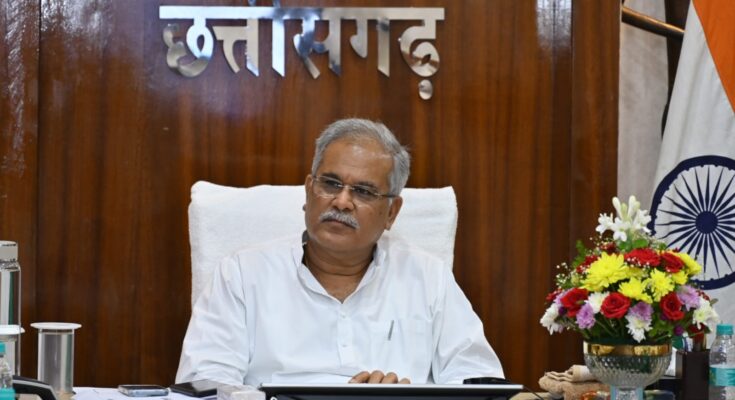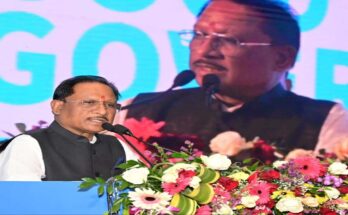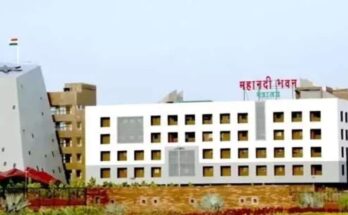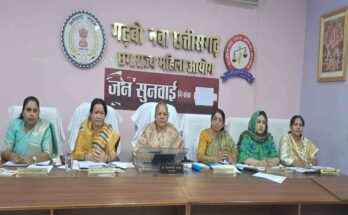
Chief Minister Haat-Bazaar Clinic Scheme successful in its objective
Appreciation of efforts of Chhattisgarh government in removing malnutrition
Benefit from malaria free campaign in Bastar
Raipur, 29 August 2022



Chhattisgarh government is working continuously by focusing on the schemes of health, education, nutrition, sanitation and social security. For the people living in tribal areas and remote areas, efforts are being made in the direction of increasing the accessibility of health facilities along with running an awareness campaign by the Chhattisgarh government under the leadership of Chief Minister Bhupesh Baghel. The Government of Chhattisgarh is continuously moving in the direction of making health facilities accessible in remote and remote areas, that is why health facilities at the ground level have become strong and accessible to the people. In such a situation, the World Health Organization (WHO) has mentioned these public health schemes being run by the Chhattisgarh government on its official website.



The article released by WHO specifically mentions the health programs and various health-related campaigns being run in the Bastar division of Chhattisgarh. He has told in the report released with photographs that antenatal care of pregnant women is being done by the Rural Health Officer at Haat Bazar Clinic in Barsur in Dantewada district, where regular health consultations, medicines and necessary vaccinations are provided free of cost. Huh. The Mukhyamantri Haat-Bazar Clinic in the weekly markets of Dantewada provides screening and screening facilities for Malaria, HIV, Diabetes, Anemia, Tuberculosis, Leprosy, Hypertension and Eye disorders to the people of the local communities living in inaccessible areas.



At the same time, the WHO report states that people are now getting quality health facilities at the local level due to health facilities through Haat-markets in remote and interior areas. According to the report, at the Mukhyamantri Haat-Bazaar clinic held in an inner village of Dantewada district, a tribal woman complained of headache and swollen legs and was diagnosed with the first stage of anemia and was given free medicine. He is completely healthy now with regular medicines and medical advice. At the same time, he told the experience of a 32-week pregnant woman living in Geedam village of the district, which is like this – “I get my health check-up done at Haat-bazaar clinic, it is very convenient for me. Health workers check my blood pressure and monitor other essentials. I also got my dose of Kovid vaccination here.”
Another Haat-bazaar clinic is mentioned in the WHO report, which states that in the Haat-bazar clinic, the patient suffering from toothache is first examined by the doctor, the problem is investigated and after the examination, he is given the necessary treatment. goes. Mukhyamantri Haat-Bazaar Clinics scheme provides health services in weekly markets in inaccessible areas to facilitate referral for primary health care and higher level of care when needed. It is worth noting that since 2019, more than 25 lakh people have availed health services in Haat-Bazar clinics in Chhattisgarh. Tribal communities living in forest areas are among the most vulnerable groups affected by malaria. Moving towards a malaria-free Bastar campaign, the Haat-Bazaar Clinic scheme in the region is helping in early detection and treatment.
According to WHO, Mukhyamantri Haat Bazar Clinic is an initiative to keep people healthy who have traditionally been left out of the health system due to being in remote or inaccessible areas. In Narayanpur district, regular child weighing is done by health workers at Sonpur Haat Bazar clinic to monitor good health and identify early signs of malnutrition. After investigation, children with severe acute malnutrition (SAM) are admitted to the Nutrition Rehabilitation Centre. proper nutrition of the child by health workers, Mothers are also given information and advice about breastfeeding and routine immunizations for good health and development. Primary health services are delivered to the most inaccessible areas in Orchha village of the district. This is an important step towards making health facilities accessible to the masses and bringing them into the mainstream of the health system.




